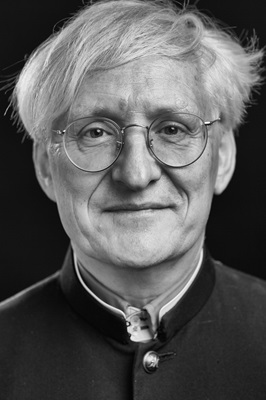
Bio:
Steven Pemberton is a distinguished researcher in the field of computer science and information technology, with a long and rich history of contributions to the development of the internet and the web. He is affiliated with the Dutch national research centre Centrum Wiskunde & Informatica (CWI) in Amsterdam, The Netherlands, where he conducts research on interaction, declarative programming, and web technologies.
At university he was tutored by Dick Grimsdale who built the world's first transistorised computer, and who was himself a tutee of Alan Turing. After university, Pemberton -- coincidentally -- worked in Turing's old department in Manchester, writing software for the 5th computer in the line of computers Turing had worked on.
Pemberton was the first user of the open internet in Europe when the CWI created the first connection in 1988, and has been involved with the web from its inception, co-designing several web standards, including HTML, CSS, XHTML, XForms, and RDFa. He chairs two groups at W3C.
In addition to his work on the web, Pemberton has also made significant contributions to other areas of computer science, such as the design of programming languages, having co-designed the language that Python is based on, and the study of human-computer interaction. His involvement with ACM includes being editor in chief of The SIGCHI Bulletin, and then ACM interactions for a decade; he has chaired the CHI Conference and he co-founded the Netherlands local SIGCHI group, and chaired several local CHI conferences there.
He has received numerous awards and recognitions for his work, including the ACM SIGCHI Lifetime Service Award and the ACM SIGCHI Lifetime Practice Award.
As a speaker, Pemberton is known for his engaging and informative presentations, which draw on his deep knowledge of computer science and his passion for technology, and cover both social and technological aspects of computing. His talks are always thought-provoking and entertaining, and he has been invited to speak at numerous conferences and events around the world. In 2023 he became an ACM Distinguished Speaker. He is bi-lingual in English and Dutch.
A fuller bio, videos, and a full list of talks is available on his website https://www.cwi.nl/~steven
Available Lectures
To request a single lecture/event, click on the desired lecture and complete the Request Lecture Form.
-
4 a.m. is the new midnight(and other internet philosophies)
For nearly 60 years we have experienced the effects of Moore's Law, the exponential growth in the power of computers, with the cost of computing halving every 18 months or so. ...
- Declarative Programming
In the 50s, when the first programming languages were designed, computers cost millions, and relatively, programmers were almost free. Those programming languages therefore reflected...- On the Design of the URL
Notations can affect the way we think, and how we operate: consider as a simple example the difference between Roman Numerals and Arabic Numberals: Arabic Numerals allow us not only to more...- Open Source is not enough!
Amazingly, and unexpectedly for some, open source software is really good. And it's everywhere: as has been said before, you use Linux ten times a day and don't even know...
- Programmers are humans too
Imagine, hypothetically, that programmers are humans ... despite all evidence to the contrary:* They work at night, and sleep during the...- The Computer as Extended Phenotype/The Evolution of Memory
In genetics they talk of the "phenotype". This is any observable characteristic or trait of an organism including its form and structure, development, behaviour, and even products...- The Internet of Things and the coming Robot Rebellion
Technological changes in society seem to be accelerating: in fact you can go back tens of thousands of years and discover an alarming pattern: they are accelerating at an exponential rate....- The One Hundred Year Web
The year 2023 marks the thirty-second anniversary of the World Wide Web being announced: on 6 August 1991, Tim Berners-Lee posted a short summary of the World Wide Web project to an...- The Printing Press vs The Web: The Effects
The introduction of book printing changed the world: information became more available, and much more affordable, and a whole new infrastructure and economy was created for the distribution...- The future is already here, just not very evenly distributed
The future doesn't just suddenly happen. It comes creeping up on us,like an oil slick.For instance, in 1991 the first web server went online; the Web wasn't an...- There is no yellow in this presentation (on Colour and Reality)
There are objective realities, and subjective realities. The objective reality isn't that the sun rises, but that the world turns to face the sun. And yet we still say "the...- There's no I in AI (yet)
There's no intelligence in current AI systems, but apparently we think there is, and then get surprised when it gives wrong answers. Why is this, and what will happen when we get...- Web n+1: Start Planning Now!
The Web has turned into a programming environment, turning its back on its earlier roots of simplicity and ease-of-use, and in the process many properties of the early web have been...- Why you should have a Website
The Sapir-Whorf Hypothesis postulates a link between thought and language: if you haven't got a word for a concept, you can't thinkabout it; if you don't think...To request a tour with this speaker, please complete this online form.
If you are not requesting a tour, click on the desired lecture and complete the Request this Lecture form.
All requests will be sent to ACM headquarters for review.
- Declarative Programming
